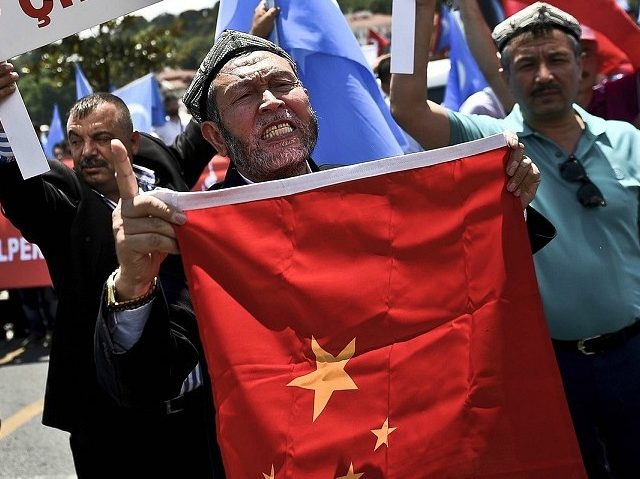Beijing is demanding the extradition of 11 Muslim Uighurs from Malaysia as part of its efforts to allegedly combat Islamic extremism in and around Chinese soil.
The extradition request constitutes the latest effort by China to flex its security muscle on other countries in the region, the South China Morning Post (SCMP) reports.
The Malaysian Bar Association has reportedly come out against Beijing’s request, arguing that granting the extradition of individuals from China’s already oppressed Muslim Uighur (or Uyghur) minority would amount to a violation of international law.
Malaysia has catered to questionable extradition requests of Uighurs issued by China in the past, prompting the Morning Post to note that “prospects for the Uyghurs who face certain detention in China are not good.”
“The Malaysian government’s record on respecting international law leaves much to be desired. Apart from the 11 Uygurs deported to China in August 2011, the Malaysian government also forcibly detained three Turkish nationals in May 2017 and returned them to Turkey at the request of the Turkish government,” the Malaysian bar association said, according to SCMP.
Beijing will likely pledge economic incentives to Malaysian President Najib Razak, who is up for election in the coming months, to get his approval for the extradition of the Uighurs, the Morning Post posits, adding:
China has in recent years repeatedly persuaded governments to extradite Uygurs even though they had not been formally charged with any crime and faced certain persecution. The 11 were among 25 Uygurs who escaped from a Thai detention center in November. They were part of a group of 200 Uygurs detained in Thailand in 2014, 100 of which were forcibly deported to China in July 2015, sparking international outrage.
Uygur militants were suspected of bombing Bangkok’s Erawan shrine a month later, killing 20 people in retaliation for the forced repatriation.
China has been cracking down on the oppressed Uighur Muslim minority in autonomous Xinjiang, the country’s largest province that borders Afghanistan, Pakistan-occupied Kashmir, India, Mongolia, Russia, Kazakhstan, Kyrgyzstan, and Tajikistan.
Beijing has reportedly employed significantly intrusive monitoring systems in Uighur-majority Xinjiang.
The U.S.-backed government of Afghanistan has confirmed that China is discussing establishing a military base in Afghanistan to monitor and combat the Uighurs who operate and train in the region.
Uighurs who have joined the Islamic State (ISIS/ISIL), which still maintains a presence in Afghanistan despite the demise of its so-called caliphate in the Middle East, and those fighting on behalf of al-Qaeda have threatened to attack China.
The United States has expanded its airstrike campaign to the territory at or near the China-Afghanistan border, targeting Taliban- and al-Qaeda-affiliated Uighur terrorist groups, namely the East Turkestan Islamic Movement (ETIM).
The United States is promoting counterterrorism cooperation with China in Afghanistan, according to the Pentagon.
China has implemented measures that SCMP notes go beyond Orwellian-style surveillance to score loyalty to the ruling communist party among the Uighur-majority residents of Xinjiang.
SCMP reports:
China has introduced what must be the world’s most intrusive surveillance system using algorithms. Streets in Xinjiang’s cities and villages are pockmarked by cameras; police stations dot roads every 500 meters in major cities; public buildings resemble fortresses; and authorities use facial recognition and body scanners at highway checkpoints.
The government, in what has the makings of a re-education program, has opened boarding schools “for local children to spend their entire week in a Chinese-speaking environment, and then only going home to parents on the weekends”, according to David Brophy, a China scholar at the University of Sydney. Adult Uyghurs, who have stuck to their Turkic language, have been ordered to study Chinese at night schools.
Uighurs — ethnic Turkic Islam adherents — are the most prominent Muslim group in China.
However, China has also reportedly begun cracking down on another Muslim minority groups within its border, the Hui, banning them from receiving religious education, acknowledges the South China Morning Post.

COMMENTS
Please let us know if you're having issues with commenting.